Very few predicted that a team that was absent in the prior editions of the Asian Championship would not only end up winning gold but also dominate Asian soccer for the next 10 years. The 4th edition of the Asian Championship took part in Amjadieh Stadium in Tehran and consisted of five teams. The two automatic qualifiers were hosts Iran and defending champion Israel, while Burma, Hong Kong and Taiwan advanced from Western, Central and Eastern Asian qualifying zones respectively. The format for the finals was as a round robin tournament with no championship game. The high interest in soccer (and perhaps the cheap ticket prices) resulted in a near-sellout in every game, even those not featuring Iran.
Iran was lead by Bayati and had a mixture of youth and holdovers from the 1966 Asian Games in its roster. Iran made a winning start to the competition but left it late to finally see off Hong Kong.
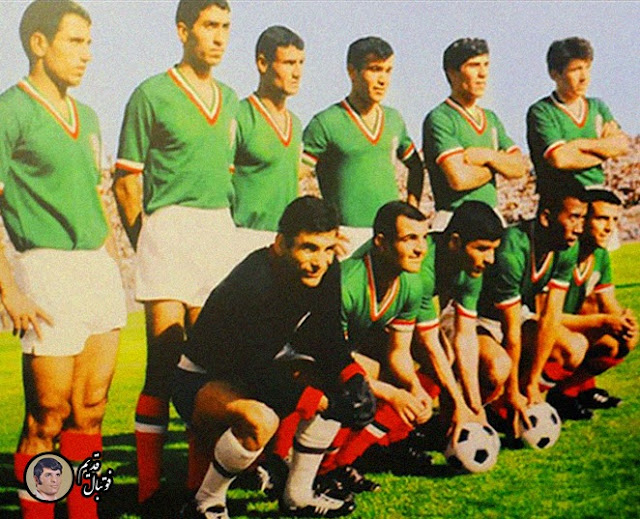
In the second game Iran defeated Taiwan 4-0 as Behzadi’s opening
header was followed up by goals from Kalani, Eftekhari and Farzami.
In the next game Iran managed to avenge their 1966 Asian Games championship loss against Burma by defeating them 3-1.
Kalani kicked off Iran’s 3-1 win with just two
minutes played.
Aung Khi would equalize five minutes into the second half. While Ghelichkhani’s shot bounced off of the post but ultimately Eftekhari’s strike on the hour mark and Behzadi’s 71st minute effort ensured Iran continued their 100% record.
Following this win, only Israel had a mathematical chance of catching Iran due to its two points and two remaining games compared to Iran’s six points and one remaining game which ironically was against Israel. A tie against Israel would have still granted Iran the championship due to a superior goal difference while Israel would have required a win.
Nevertheless Iran still sought a victory and
achieved a 2-1 win over Israel with goals coming from Behzadi and Ghelichkhani.
The game would feature a red card to each team, Esmaeili being the recipient
for Iran while Israel’s captain would receive his marching orders for repeatedly
fouling Kalani. Israel took the lead in the 56th minute, scoring from
close range following an opportunity created by Mordechai Spiegler, the top scorer
of the previous tournament.
Bayati had been forced to sit an injured Behzadi for
this game, but with Iran trailing and the spectators unanimously calling for
Behzadi, he had no other choice but to send him in. Around half a century
later, Behzadi would recall that he had only been able to take the field with
the help of a couple of injections. In the 75th minute following a
pass by Eftekhari in the six-yard box, Behzadi equalized on a goal disputed by
the Israelis after his initial shot was only partially blocked on the line
before being cleared out of the box. With the Israelis protesting and the referee
adamant in his decision, it would take a full 10 minutes for play to finally
resume.
In the 86th minute a free kick was played short to
Ghelichkhani who dribbled past one player and shot in between two others to
give Iran the lead and an ultimate 2-1 win.
With four consecutive wins Iran
finished in 1st place and won its first Asian Championship while
Behzadi ended up as joint top scorer with four goals.

Iran roster: Asli, Zelli, Shahrokhi, Kashani, Hasan Habibi, Arab, Saedi, Haghverdian, Esmaeili, Ghelichkhani, Farzami, Jabbari, Sharafi, Kalani, Eftekhari, Behzadi. Coach: Bayati

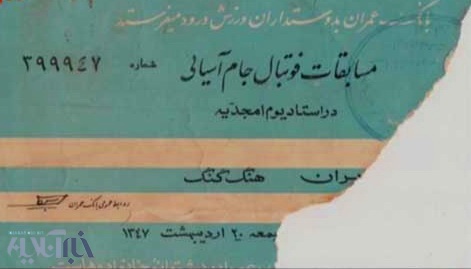











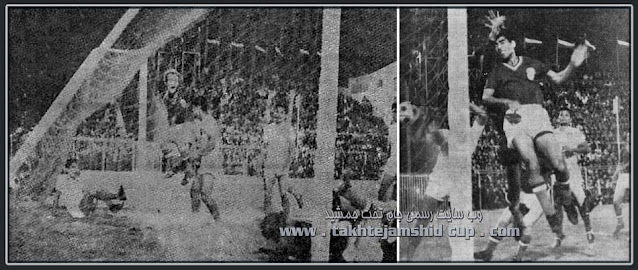









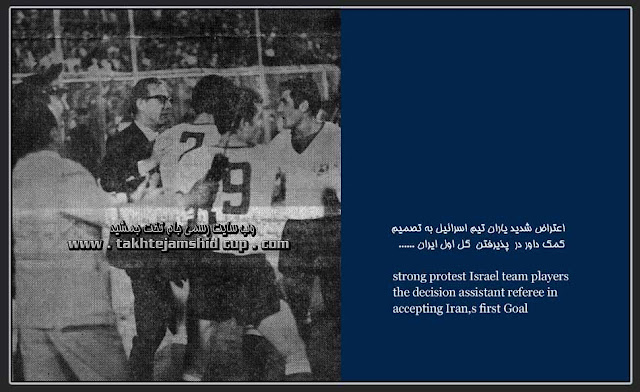












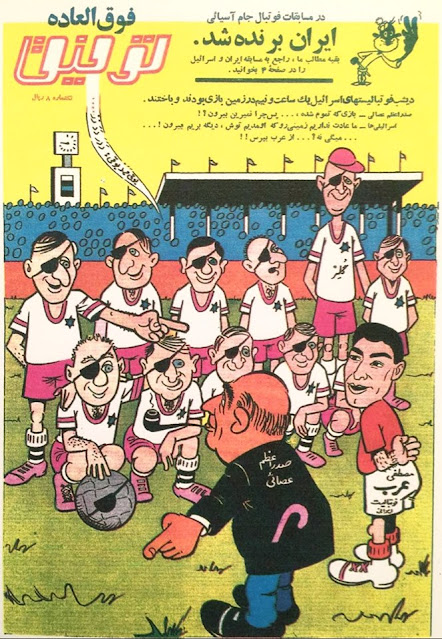
No comments:
Post a Comment